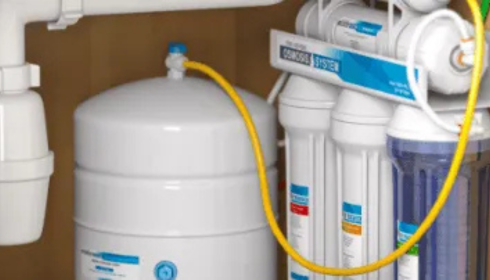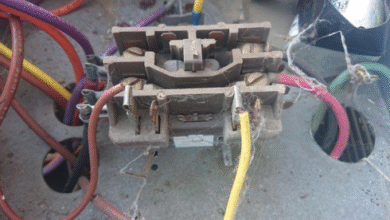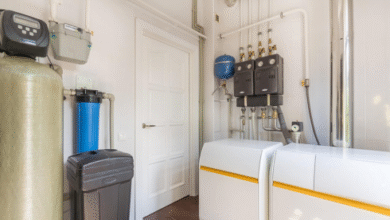Facing the PFAS Problem: How Tampa Homes Are Protecting Their Water

It’s funny how we expect water to be simple. Clear, fresh, no surprises. Yet the deeper you look into what actually flows from your tap, the more complicated the story becomes. In recent years, a word has been popping up again and again in water conversations across Florida—PFAS. Short for per- and polyfluoroalkyl substances, PFAS are a class of chemicals that don’t break down easily, earning the ominous nickname “forever chemicals.”
They’ve been used in everything from nonstick cookware to firefighting foams, and over time, they’ve made their way into groundwater. Tampa isn’t immune, and for homeowners who want peace of mind, the issue has become impossible to ignore.
What Makes PFAS Such a Big Deal?
PFAS are tricky. They’re resistant to heat, water, and oil, which made them useful for decades in manufacturing. But those same properties mean they stick around—in soil, in water, and unfortunately, in our bodies. Studies link long-term PFAS exposure to a range of health concerns, from immune system effects to potential cancer risks.
It’s why local families have started searching for reliable PFAS water treatment Tampa options. It’s not about paranoia—it’s about reducing exposure to chemicals that weren’t meant to be part of anyone’s drinking water in the first place.
How PFAS Sneak Into Everyday Life
The thing with PFAS is you don’t see, smell, or taste them. Unlike chlorine, which announces itself with a swimming pool vibe, PFAS fly under the radar. They can enter water through industrial runoff, older landfills, or even firefighting foam used at airports and military bases. Once in the groundwater, they travel—and Tampa’s aquifers aren’t exempt.
For homeowners, that means you could be pouring a glass of water that looks crystal clear but still carries invisible traces of PFAS. That unsettling thought is often the push that gets people looking into long-term solutions.
Why Standard Filters Don’t Cut It
A pitcher filter on the counter may work for chlorine or sediment, but PFAS require more specialized systems. Technologies like activated carbon and reverse osmosis are the real players here. They’re capable of reducing PFAS to levels considered safe by current guidelines.
That’s why professional PFAS filtration system installation is gaining momentum. It’s not just about plugging in a device—it’s about designing a setup that fits your home’s water usage, ensuring the system consistently tackles the problem without slowing your daily routine.
Tampa’s Unique Situation
Florida already struggles with complex water challenges—hardness, chlorine levels, occasional sulfur odors. Add PFAS into the mix, and the case for advanced treatment becomes stronger. Local water providers test regularly, but contaminants like PFAS highlight the limits of what large-scale treatment can realistically handle.
That’s where homeowners step in, taking control at the household level. Just like installing a softener for hard water or a filter for chlorine, addressing PFAS is about tailoring solutions to protect your family specifically.
The Role of EcoWater in Local Solutions
Among the options out there, EcoWater has carved out a name in Florida communities for reliability and adaptability. Their systems aren’t off-the-shelf—they’re built to handle the unique quirks of local water. Homeowners who’ve invested in an EcoWater PFAS solution Tampa setup often say it’s less about chasing the latest gadget and more about securing long-term confidence.
EcoWater’s combination of filtration technologies gives residents a fighting chance against PFAS while still handling the more familiar nuisances of Tampa water.
The Everyday Impact of Cleaner Water
The shift is subtle but powerful. Once PFAS-targeted systems are in place, families notice changes they didn’t expect. Parents say they feel better about filling bottles from the tap instead of buying endless cases of water. Coffee and tea taste cleaner, without that faint aftertaste that sometimes sneaks in. Even the peace of mind itself—knowing your water is actively being filtered—is worth more than people realize until they’ve lived with it.
Balancing Costs and Benefits
Yes, advanced filtration comes with a price tag. But when you stack it against the cost of bottled water, appliance wear from untreated water, or simply the worry of chemical exposure, the math often makes sense. These systems are investments, built to last, and they add value to the home as well as comfort to daily life.
And unlike quick-fix gadgets, professional installations are designed for efficiency—using less waste, requiring less maintenance, and producing consistently safe water over time.
Stories That Stick
One Tampa homeowner shared how, after years of ignoring PFAS headlines, he finally installed a system when his daughter started school. “I realized I couldn’t keep hoping the city water was enough. Once the system went in, it felt like we had taken control of something that mattered.”
Another family near Clearwater mentioned how their EcoWater setup not only improved confidence in their drinking water but also solved lingering chlorine issues they had tolerated for years. For them, it was two problems solved with one decision.
What the Process Usually Looks Like
Getting started is simpler than most expect. A technician tests the water, explains what’s really in it, and recommends systems tailored for the results. From there, installation is quick—often a matter of hours. Once installed, the system quietly goes to work, needing only occasional maintenance.
The hardest part for most families isn’t the setup—it’s making the decision to move forward.
Looking Ahead for Tampa
PFAS isn’t going away anytime soon. These chemicals linger, and cleanup at the municipal level will take years, if not decades. But that doesn’t mean residents are powerless. By investing in household-level filtration, families are effectively buying themselves time and safety while larger solutions catch up.
As awareness grows, more Tampa homeowners are likely to make PFAS treatment part of their standard household upgrades—right alongside softeners, heaters, and other everyday systems.
Wrapping It Up
Clean water isn’t just about clarity or taste—it’s about trust. And trust is hard to come by when invisible contaminants like PFAS are in the conversation.
For Tampa residents, the message is clear: waiting for big-picture fixes may take too long. Acting at home—whether through professional filtration installation, EcoWater systems, or tailored treatment—is the most practical step forward.
Because in the end, water isn’t optional. And making sure it’s safe shouldn’t feel like a luxury—it should feel like the baseline for living well.




